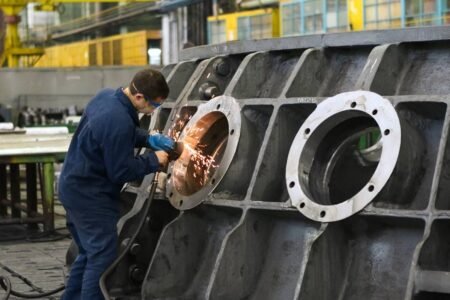Innovative growth-oriented businesses need equity investment. The European Commission in particular is seeking to improve the functioning of the EU’s single market for equity investments.
Advertisement
Risk capital comprises funds made available to a company during its early growth stages (start-up and development). It covers three types of financing: informal investment by business angels, venture capital, and stock markets specialised in SMEs and high growth companies.
Innovative and growth-oriented small businesses need to raise capital (equity investment) from external sources, because they do not have their own resources or cannot access loans.
However, many investors are reluctant to invest in start-ups and innovative firms because of the high risks and transaction costs, or because they estimate that the expected returns will not compensate for the risk.
Europe needs to improve all stages of the equity finance process to promote growth and innovation: improved technology transfer (getting ideas from universities and research bodies to the market); increasing investment in firms, both early-stage and expansion-stage; and creating opportunities for investors to exit.
The Commission is working closely with the Member States to improve the efficiency of the markets for equity investment so that sound projects can find suitable investors. Integrated, open, more competitive European financial markets are essential for the long-term growth and competitiveness of our firms and economy.
More business angel investment and greater readiness
Business angels are wealthy private individuals with business experience that invest their own funds into businesses they find interesting and promising. Business angels also help the entrepreneurs by inputting their experience.
They are particularly active in the early stages of a firm’s development. Business angels provide seed financing to study, assess and develop an initial concept. They also finance the start-up phase that includes product development and initial marketing.
For entrepreneurs to be able to convince business angels and other investors about the value of their ideas, they need to be able to address the specific areas of concern that investors have and present a comprehensive business plan. In other words, it is important to facilitate “investment readiness”.
The Commission aims to encourage Member States to learn from good practices by supporting business angel investments, in particular across borders, and through cooperation with venture capital funds. The Commission is also spreading good practices in investment readiness training.
More finance when most needed – Early stage
During their initial phase, firms need finance to study, assess and develop an initial concept (seed phase) or for product development and initial marketing (start-up phase). At this stage, firms may be in the process of being set up or may exist, but have yet to sell their product or service commercially. Therefore, it is difficult for them to access finance, which is why the EU focuses on reducing this market gap.
Venture capital across borders
Firms typically look for venture capital to provide them with the financing they need to expand, break into new markets and grow faster. Although venture capital is only relevant for a small group of firms, it is essential for the growth of innovative firms.
Venture capital funds raise funding from other institutional investors and invest usually large amounts into firms with potential for rapid growth, focusing on expansion – at this stage a firm has survived long enough to become an interesting prospect for venture capital funds.
The Commission has established a broad partnership with the Member States for the mutual recognition of national regulatory frameworks for venture capital. The goal is to move towards a truly pan-European venture capital market.
Better growth stock markets
From the moment they invest, investors are looking for an exit strategy – the point at which the investors can transfer their investment to others, releasing funds to be recycled to new ventures. In this, growth stock markets are an important exit route. These markets provide listing opportunities with simplified requirements for firms that cannot or do not want to be listed on the main stock markets. Listing provides them with access to a potentially wider equity investor base.
Unfortunately, the European alternative equity markets are relatively weak. Easier EU-wide access to growth stock markets is needed in order for firms to be able to become listed easily and for stocks to be readily accessible to qualified investors from all around the EU. Such easier access to financing through stock markets could provide opportunities for the flotation of firms seeking to broaden their capital base on competitive terms. Initial public offerings of stock provide a natural exit route for venture capital investors and give valuation guidance for sales to other companies.
Without liquid exit markets for venture capital that would have a critical mass of advisory services around them, venture capital funds will always face difficulties. Their weakness strangles the growth of key SMEs.
The Commission is seeking therefore to facilitate cross-border operations in financial exchanges, remove obstacles to the use of competing clearing and settlement systems, and apply common rules to trading.
How to obtain equity finance
The Competitiveness and Innovation Framework Programme (CIP) has a set of financial instruments that support equity investment. The instruments are implemented through financial institutions in the Member States, mainly venture capital funds. Financial institutions interested in participating in the programme should contact the European Investment Fund (EIF) that manages the instruments or visit the Fund’s CIP venture capital website.
For SMEs, an overview of this activity can be found on the EIF’s venture capital website, as well as a list of deals up until May 2008. New deals under the CIP are being updated country by country on the access2finance website, under the venture capital section for each country.
Key policy documents
Removing Obstacles to Cross-border Investments by Venture Capital Funds (Dec 2007): Commission Communication on mutual recognition of the national frameworks for venture capital funds.
Financing SME Growth – Adding European Value (June 2006): this Communication outlines Commission policy on SME finance.
Source: European Commission







